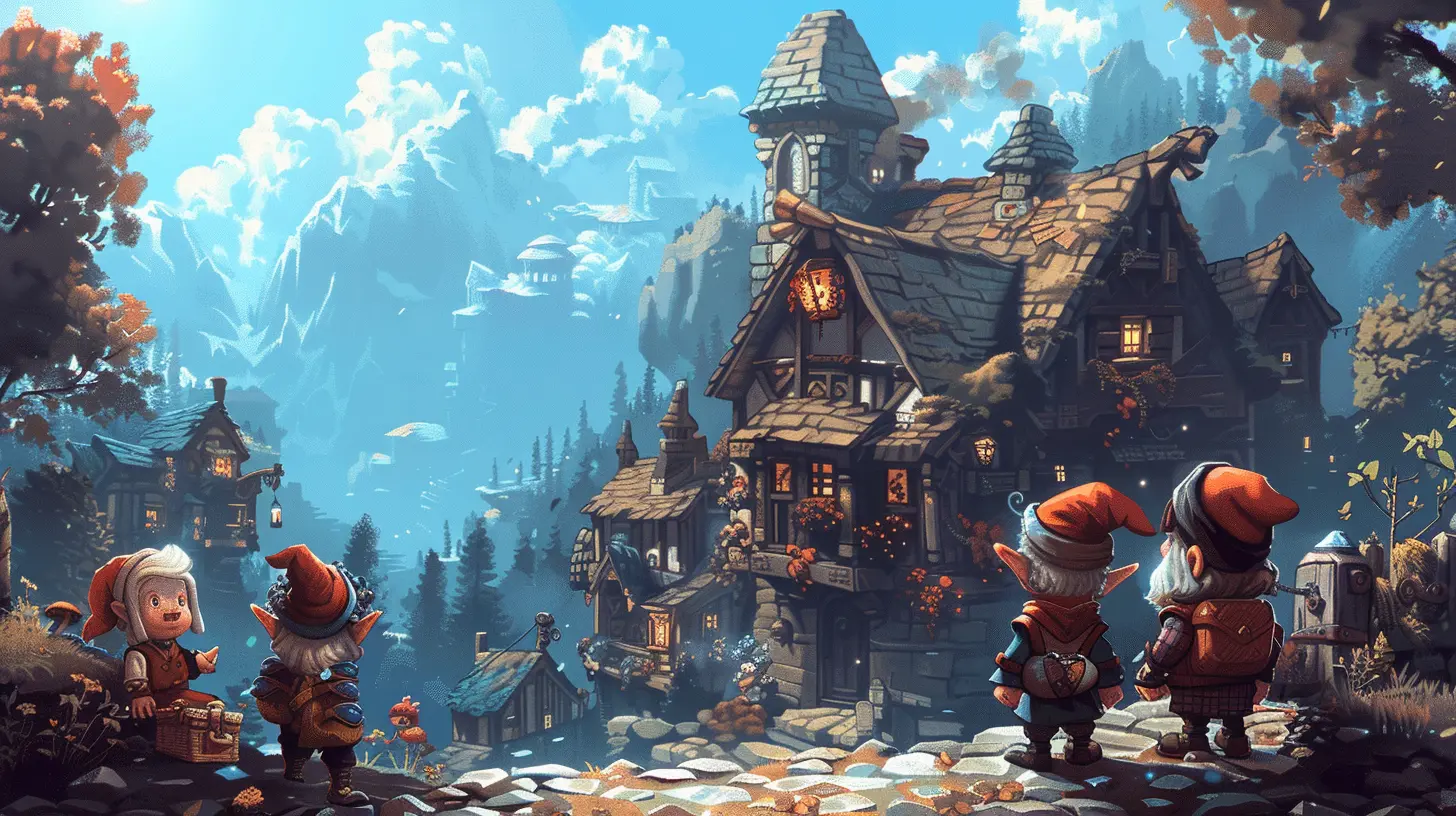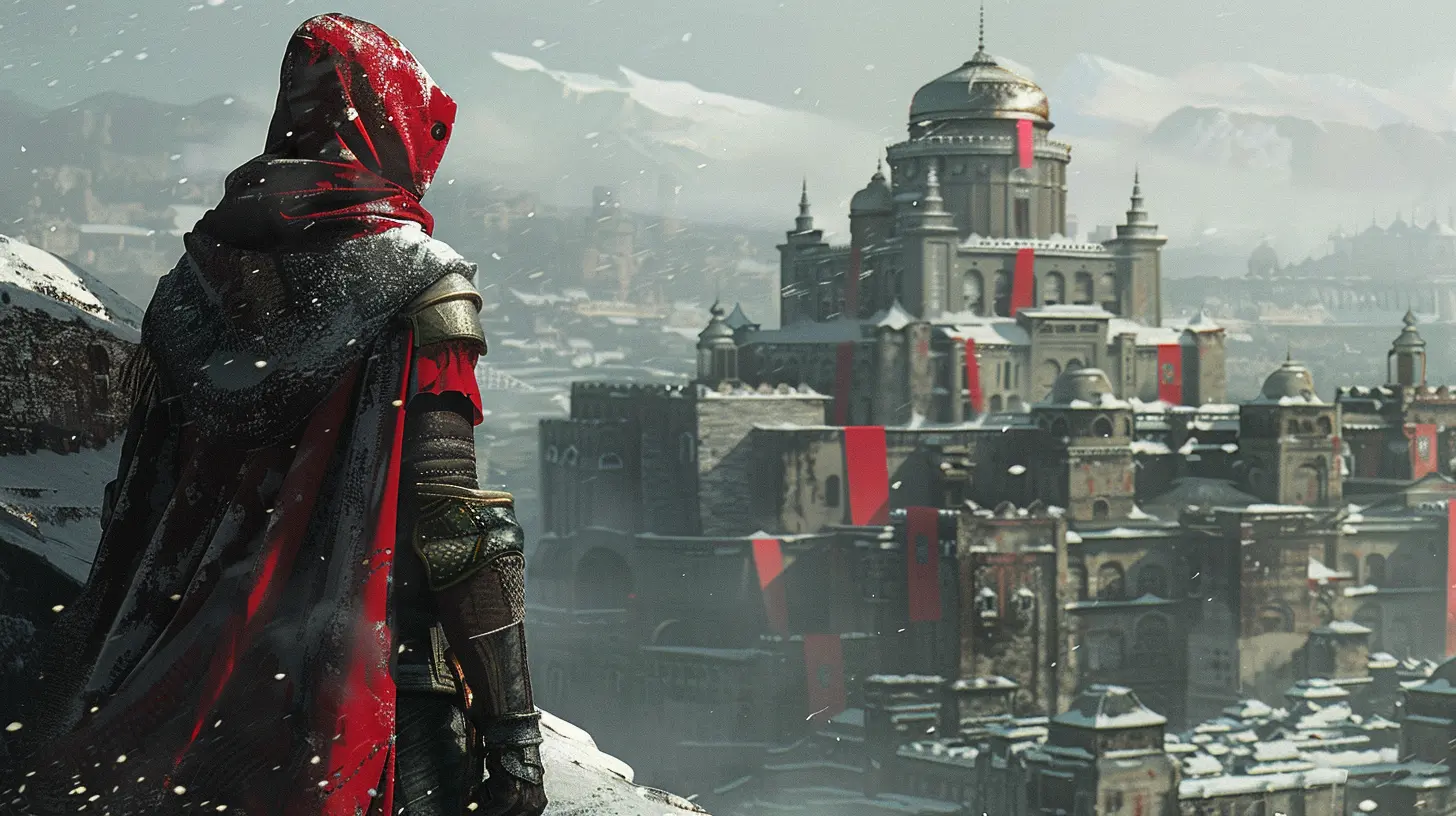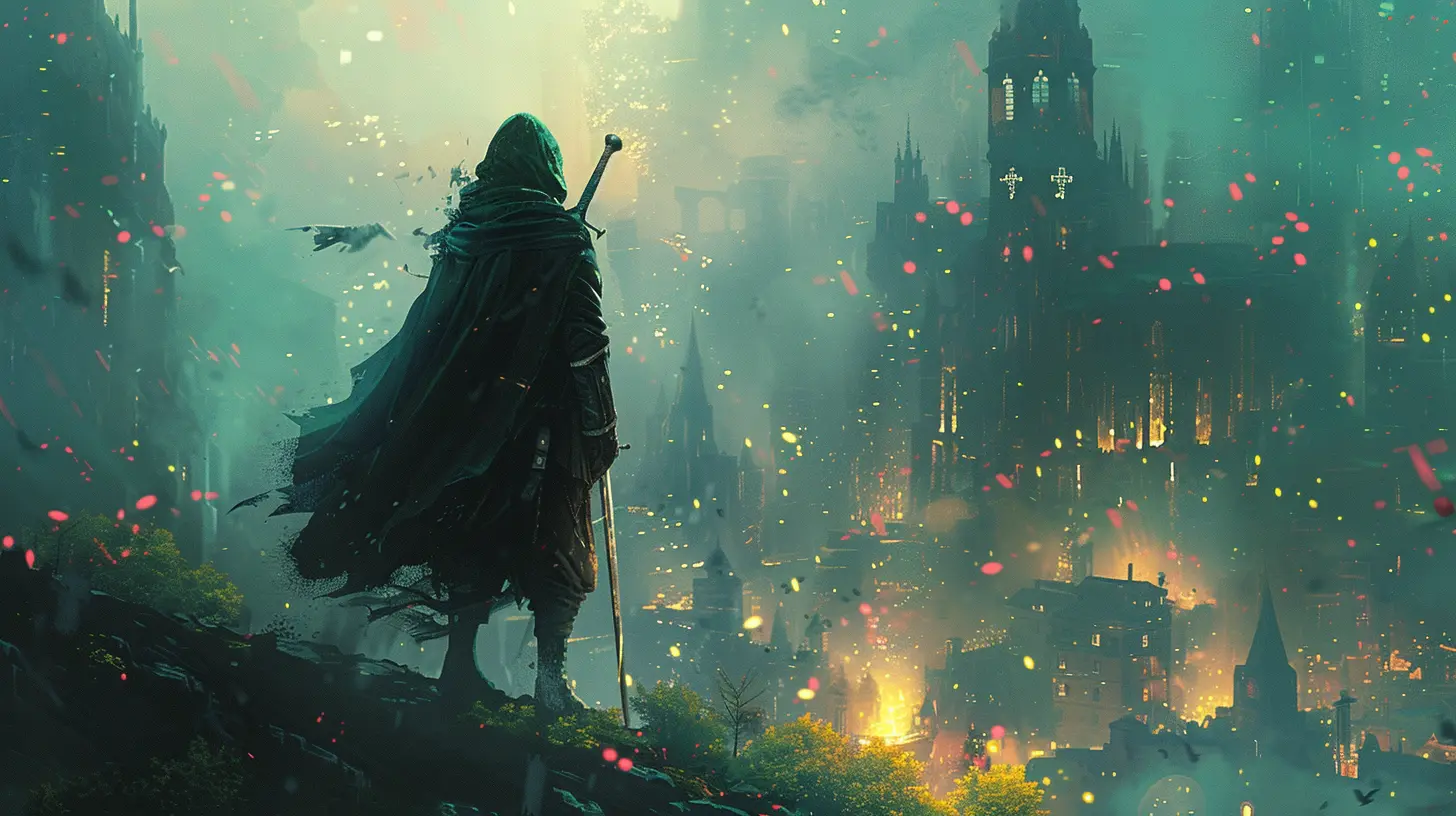From Idea to Reality: How Crowdfunding Brings Independent Games to Life
7 July 2025
Let’s face it—bringing an idea to life can feel like climbing a mountain with no gear. For independent game developers, turning their wild, imaginative concepts into fully realized games was once an almost impossible feat. Lack of funding, limited resources, and a crowded marketplace created an uphill battle. But then came the hero we didn’t know we needed: crowdfunding.
Crowdfunding has fundamentally changed the way indie games are made. It’s like handing the reins to gamers themselves—they decide which projects deserve the spotlight (and their money). But how does crowdfunding really work for game developers? And what makes it such a game-changer? Grab a cozy seat because we’re diving deep into the fascinating journey of how crowdfunding helps indie games go from brainchild to button-mashing reality.
The Magic of Crowdfunding: A Quick Recap
Before we go all-in, let’s break down what crowdfunding is. Think of it as passing a digital hat around the internet. Creators pitch their ideas to the masses through platforms like Kickstarter, Indiegogo, and Patreon. Instead of seeking a single investor (like a big publisher), they ask everyday folks to contribute small (or big) amounts of money to help fund the project. In return, backers usually snag cool rewards—like early copies of the game, exclusive merch, or even a shoutout in the credits.For indie game developers, crowdfunding isn’t just a fundraising tool. It’s a golden ticket to creative freedom, community building, and sometimes, a much-needed reality check. Sounds cool, right? Let’s peel back the layers.
Why Crowdfunding Works Wonders for Indie Games
1. Creative Independence: No Strings Attached
In traditional game development, money often comes with strings attached. Big publishers may dictate the design, story, or release schedule to make sure the game appeals to broad audiences. Crowdfunding flips that script. Developers can focus on their vision, no compromises, no corporate suits breathing down their necks.Take Hollow Knight, for example. Team Cherry raised over $50,000 on Kickstarter in 2014. That funding allowed them to create the game they wanted, without outside pressure to water down their ideas. The result? A critically acclaimed masterpiece that still feels authentic and original.
2. Building a Tribe: Community Comes First
Crowdfunding isn’t just about gaining funds—it’s about rallying a loyal community. Backers aren’t just “investors"; they’re superfans who care deeply about the project. They want to see it succeed and often act as unofficial ambassadors, spreading the word far and wide.This relationship can be incredibly rewarding for developers. When Undertale creator Toby Fox crowdfunded his quirky RPG on Kickstarter, he didn’t just raise $50,000. He built a passionate fanbase that championed the game even before it launched. By the time Undertale hit shelves, it already had a built-in audience, which skyrocketed its success.
3. Market Validation: Does Anyone Actually Want This Game?
Here’s a tough pill to swallow: not every idea is a good one. Crowdfunding kills two birds with one stone—it raises money and tests the waters. If people rally behind your game and throw cash at it, that’s a pretty good sign you’re onto something. If it fizzles out? Well… it might be time to rethink your approach.Crowdfunding gives developers valuable feedback before they’ve invested years of work into a project. It’s like having a cheat sheet for what players actually want. 
The Crowdfunding Journey: From Flashy Pitch to Finished Game
Now that we know why crowdfunding is amazing, let’s break down how it all comes together. Spoiler alert: it’s not as simple as tossing up a campaign page and watching the money roll in. It takes hustle, strategy, and a pinch of luck.Step 1: The Idea Phase
Every great crowdfunding campaign starts with a killer idea. But here’s the catch: it has to be unique. Indie games thrive when they fill a gap the big studios haven’t touched. Whether it’s a fresh art style, an emotional story, or a quirky gameplay mechanic, the hook has to stand out.For instance, Stardew Valley began as one man’s heartfelt response to the lack of modern farming sims. Eric “ConcernedApe” Barone worked tirelessly for years to bring his vision to life—and now, it’s a worldwide phenomenon.
Step 2: Crafting a Pitch That Shines
The campaign page is your first (and sometimes only) shot at grabbing attention. A boring pitch won’t cut it. Successful projects use high-quality videos, jaw-dropping visuals, and heartwarming stories to build hype. Backers want to know: Who are you? What’s your game about? And why should I care?Pro tip: Transparency is key. Include a clear breakdown of how funds will be spent, realistic timelines, and stretch goals to keep people engaged.
Step 3: The Campaign Dance
This is where the magic (and chaos) happens. Developers launch their campaigns and promote them relentlessly. Social media becomes their best friend, alongside gaming forums, Reddit threads, and even live-streaming platforms like Twitch. Staying active and engaging with backers during the campaign is essential.It’s worth noting that most campaigns see a surge at the beginning and end of their funding period, with a dreaded “quiet middle” in between. Creators have to keep the momentum going with updates, sneak peeks, and community challenges to avoid losing steam.
Step 4: Development Hustle
Once the funding goal is met, it’s time to roll up those sleeves. Development can take months—or even years. During this time, developers often keep backers in the loop with updates, behind-the-scenes sneak peeks, and alpha or beta testing opportunities.It’s a tricky balancing act. Delays are common in game development, but communication is everything. Backers are more understanding if they feel like they’re part of the process. 
Crowdfunding Success Stories That Inspire
Crowdfunding isn’t all sunshine and rainbows. It’s tough, and not every campaign succeeds. But when it works, it’s magical. Here are a few standout success stories that prove the power of crowdfunding in the gaming world:- Shovel Knight: Yacht Club Games raised over $300,000 on Kickstarter for its retro-inspired platformer. The game went on to win multiple awards and still holds a special place in gamers’ hearts.
- Broken Age: Tim Schafer’s Broken Age was one of the first high-profile examples of crowdfunding success in gaming. The campaign raised over $3 million on Kickstarter, opening the door for countless other indie developers.
- Darkest Dungeon: This brutally difficult dungeon-crawling RPG raised $315,000 on Kickstarter, proving that gamers were hungry for something a little more challenging (and a little more punishing).
Challenges of Crowdfunding in Game Development
It’s not all smooth sailing, though. Crowdfunding comes with its own set of challenges. Some projects fail to meet their funding goals, while others face backlash if they fail to deliver on their promises.The pitfalls often boil down to poor planning, communication, or unrealistic expectations. There have even been cases where creators ran out of funds before finishing the game, leaving backers disappointed and trust damaged. So, while crowdfunding is a fantastic tool, it’s not a guaranteed golden ticket.
The Future of Crowdfunding and Indie Games
As crowdfunding continues to evolve, it’s clear that it’s here to stay. Platforms are improving their tools, and developers are learning from past mistakes. We’re also seeing more creators use hybrid funding models—combining crowdfunding with publisher support to get the best of both worlds.One thing’s for sure: crowdfunding has democratized game development. It’s given a voice (and resources) to creators who might otherwise have been overlooked. For gamers, it’s a chance to shape the industry by supporting the kinds of games they actually want to play.
Conclusion
Crowdfunding has flipped the script on game development. It’s not just about raising money; it’s about championing creative freedom, building passionate communities, and empowering underdog developers to take risks. In a way, it’s like planting a seed and watching it grow—except the whole internet is in on it, cheering from the sidelines.Whether it’s the next pixel-art platformer or a groundbreaking VR adventure, the indie gaming world owes a lot to crowdfunding. And hey, the next time you back a game, just remember: you’re not just funding a project. You’re helping bring someone’s dream to life.
all images in this post were generated using AI tools
Category:
CrowdfundingAuthor:

Greyson McVeigh
Discussion
rate this article
1 comments
Sofia Riggs
Great read! Crowdfunding truly empowers indie developers to transform innovative ideas into playable games, fostering creativity and diverse experiences in the gaming world.
July 26, 2025 at 4:21 AM

Greyson McVeigh
Thank you! I'm glad you enjoyed it. Crowdfunding really does open up exciting possibilities for indie developers!


